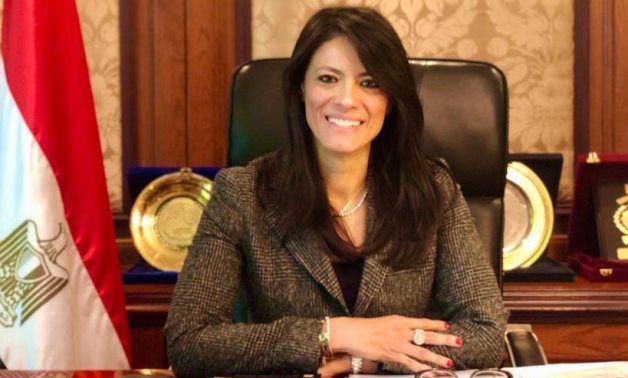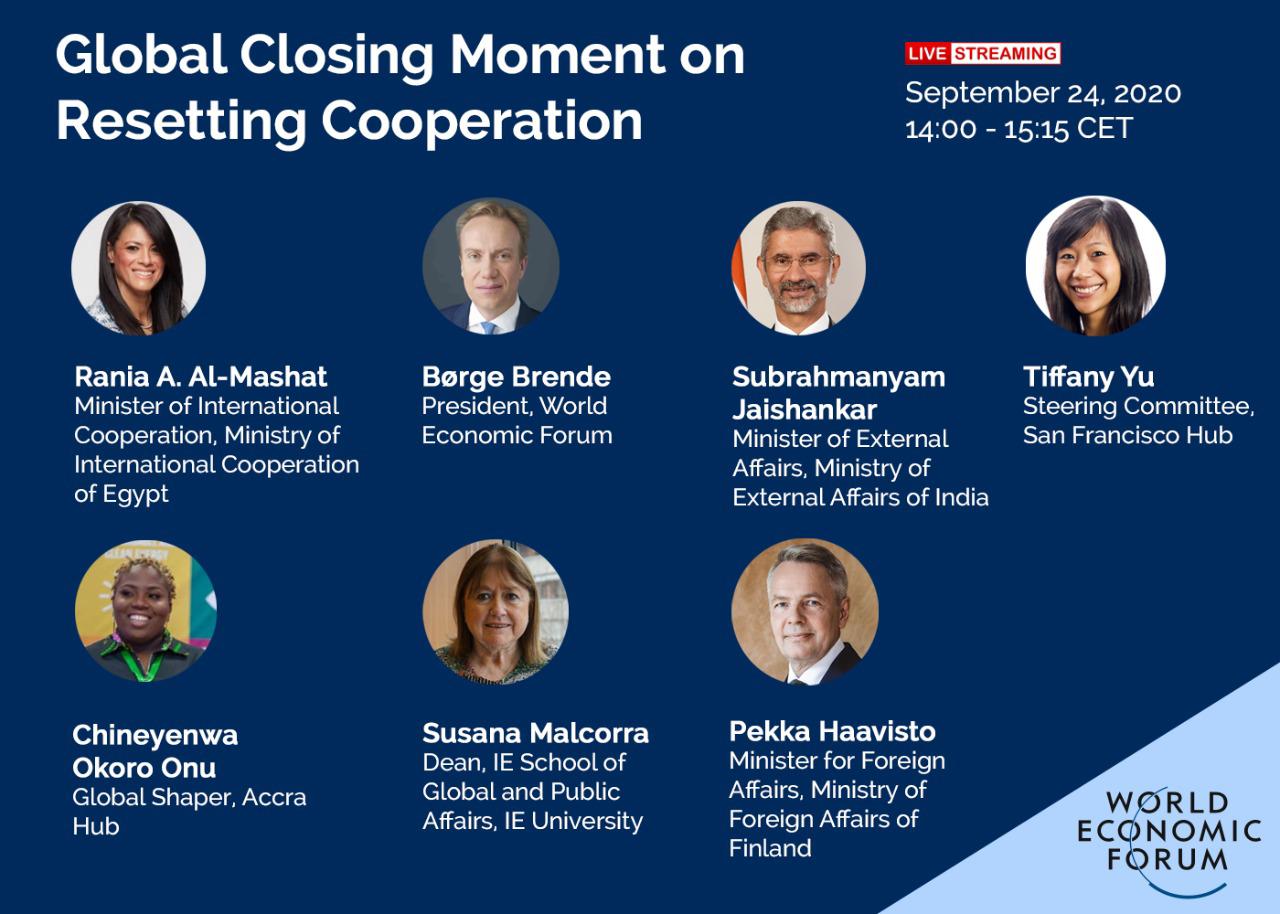
Minister of International Cooperation, Dr. Rania Al Mashat- press photo
CAIRO - 25 September 2020: Minister of International Cooperation, Dr. Rania Al Mashat, highlighted Egypt’s story of resetting cooperation in COVID-19 during the closing session of the World Economic Forum (WEF) Sustainable Development Impact Summit, which had more than 2 million views and more than 1,000 CEOs globally, including youth activists and social entrepreneurs.
The session titled, “Global Closing Moment on Resetting Cooperation”, included the participation of Børge Brende President, World Economic Forum, Dr. S. Jaishankar, External Affairs Minister of India, Susana Malcorra, Minister of Foreign Affairs in Chila, and Tiffany Yu, co-chair at the World Economic Forum. The session looked at the next steps leaders should take to strengthen global partnerships.
During the session, Brende noted that international institutions will need to adapt and introduce new actors as well as new technologists to face future crises, adding that old structures and old instruments alone will not be sufficient for countries to move ahead.
Building on this dilemma, Al Mashat referred to the years of 2020-2021 as the “Years for Multilateralism,” highlighting the distinctiveness of this year in resetting cooperation and pushing all discussions that were generated over the years to come to the fore in a way that affects citizens and corporates.
She added that there “is a very big opportunity going forward,” noting that successes during the COVID-19 pandemic created confidence and pushed for more innovation and a great reset for many things.
These successes include the Luxor projects that were implemented in cooperation between Egypt and the World Food Programme, which capitalized on the opportunity to strengthen value chains and protecting food security amid the COVID-19 pandemic.
To celebrate the UN’s 75th anniversary, the ministry announced the expansion and renovation of ongoing projects with the WFP from sixty villages to 500, in an effort to create a circular economy for small farmers and enable them to consolidate land and shift to climate-resilient techniques through using solar energy.
The minister highlighted that economic diplomacy represents the core of the ministry of international cooperation’s strategy, which is being strengthened through three main principles: regularly organizing multi-stakeholder platforms to ensure that all projects between development partners are streamlined and effectively coordinated; adopting a consistent Global Partnerships Narrative People&Projects&Purpose (P&P&P); and mapping ODA financing to SDGs for all projects with multilateral and bilateral development partners.
In her conclusion, Al Mashat noted that multilateralism in its essence is like sport, “there's competition but there's also complementarity,” looking at this period as an opportunity to capitalise on and build back better from the pandemic.
The minister previously participated in another World Economic Forum session during its annual meeting, ‘Sustainable Development Impact Summit’, in which she presented a new Societal Risk Compact through stakeholder capitalism to lead the way to sustainability.

Comments
Leave a Comment